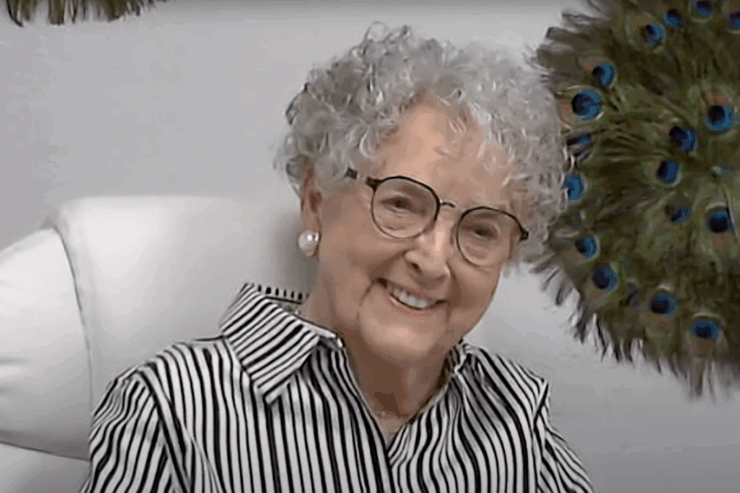
Becoming your aging parent’s voice
As our loved ones age, we want to ensure that their wishes are followed and expressed. Considering a Power of Attorney may be a great idea, as it allows families the freedom to put plans in place so that loved ones may act as their voice in making decisions and handling financial matters.
It’s always better to prepare ahead of time for situations where you might need to advocate for your loved one, especially if their physical or mental health could have limitations. Conversations with loved ones can include preferences for resuscitation or life-sustaining procedures that are outlined in the Advanced Care Directive and discussion about other important health care advances.
Let’s explore the key aspects of Power of Attorney for healthcare and financial considerations, and how to understand and uphold your parents’ wishes. We’ll share some tips on how to start the Power of Attorney conversation and prepare to act as their voice.
It’s Never Too Early to Discuss Medical Advocacy
Care for aging parents sometimes calls for medical advocacy. In the event that your parents cannot speak for themselves, a Power of Attorney allows you to speak for them. It also allows you to act on their behalf should they become unable to comprehend important decisions. This is such a powerful tool and alleviates a lot of concerns about the future by having such conversations in the present.
One common situation where Power of Attorney may be necessary is when dementia impairs your older parent’s cognitive skills. If they are not lucid, they may not be able to make rational decisions. By acting as their voice, you can protect their desires and interests. This also helps you protect them from elder abuse, which is when a friend or caregiver takes advantage of aging individuals to obtain property, money, or personal information which can be later exploited.
Another option to consider would be a Durable Power of Attorney, which authorizes an individual to act on financial decisions only if a loved one is not capable of doing so.
Remind yourself that it’s truly an act of love to advocate for your aging parents and ensure their wishes are fulfilled. By having this conversation, you’re preparing well in advance which often makes loved ones feel more comfortable and confident in the future, knowing they are following the issues of their loved one. Delaying such a conversation until they are absolutely necessary could lead to even more obstacles and also cloud your judgment. It’s much better to understand your parents’ desires now and make any necessary arrangements for Power of Attorney and medical decisions.
Becoming a Voice of Reason
When you act as your parent’s agent or advocate, you’re not just making critical decisions, you’re also acting as their voice. We all hope to be a positive voice and a voice of reason, providing guidance and clarity to our loved ones.
The first step is to fully understand your aging parents’ wishes and be prepared to uphold them, even if you don’t entirely agree with them. For example, you may wish for an ailing loved one to remain on life support, but if they have completed a Do Not Resuscitate (DNR), it becomes your ethical responsibility to defend their wishes.
Preferences for resuscitation or life-sustaining procedures are usually outlined in an Advanced Care Directive, also called a living will. ACDs are often combined with Power of Attorney documents. This way, there is specific guidance for end-of-life situations, but enough flexibility for loved ones to make critical decisions that aren’t explicitly spelled out.
ACDs and other medical decisions are only part of aging parent care. What will happen to your parent’s financial or real-estate assets when they are impaired or pass away? Many families have found themselves fighting red tape if there’s no clear guidance. Discussing your loved ones’ preferences and desires long ahead of time allows you to make clear-headed decisions and remain the voice of reason in an emotional situation.
How to Initiate a Power of Attorney Conversation
Your aging parent may have already begun to consider preparations. Many people know to prepare a living will. But they may also need to assign a Power of Attorney for their healthcare. Have they completed a HIPAA release so medical providers can share relevant information in different situations? Have they laid out a plan for how their investments and assets will be handled, should they become unable to handle them on a day-to-day basis? Who will be responsible for paying any medical or assisted-living costs?
These are complex and difficult questions, so take some time for an honest conversation. We recommend that you listen more than you talk. Ask your parents what they’ve already considered. Offer to help them complete the HIPAA release, Advanced Care Directive, and other critical paperwork along with a trusted legal advisor.
It’s usually easier to start the conversation by reflecting on situations that others they know, or have heard about, may be facing. If your parent mentions a friend in the hospital, ask them what their wishes would be in that situation. You could also ask them how they handled their own parents’ interests. This approach is gentler and more productive than trying to start with a highly formal conversation.
Don’t expect to get everything clarified and planned out in a single conversation. This topic can be overwhelming for some. That’s yet another reason to bring it up earlier so you have plenty of time to prepare your Power of Attorney and living will documents together. Ultimately, having the conversation leads to greater peace of mind for all involved.
What Power of Attorney Can Do for Your Parents’ Well-Being
While it’s never easy to consider that a loved one might have health issues that could prevent them from making their own decisions, it’s comforting to know their wishes so you can act as their voice. To ensure the best care for aging parents, start the process early. Gaining this clarity helps both you and your parents feel more comfortable setting up Power of Attorney and a living will. Remember, this process is vital to aging parent care. And while it may feel overwhelming, it’s better to allow plenty of time for these conversations.
You’re invited to learn about available services, including independent living, assisted living, CONNECTIONS care, memory care, and more. We offer a full-service approach that includes both social and physical activities to help our residents enjoy thriving lifestyles. Call today to schedule a tour in one of our modern aging communities and talk to one of our caregiving experts.



